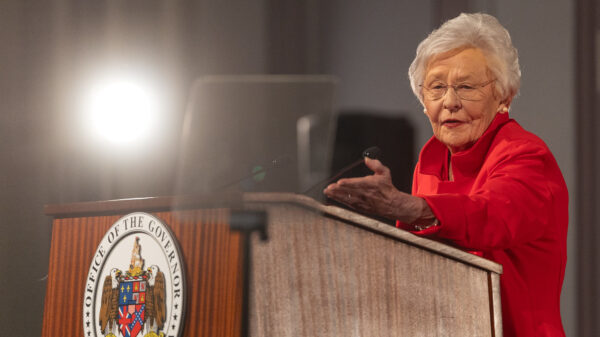By Bill Britt
Alabama Political Reporter
Here’s a little-known fact: The Alabama Ethics Commission is not governed by the laws it is charged with enforcing.
That was made abundantly clear when Commissioner Judge Charles Price voted with a conflict of interest at an Oct. 5th Commission meeting. The conflict arose when he voted yes on an Advisory Opinion that permitted the City of Montgomery to give money to the local Chamber of Commerce. Price, a retired Montgomery Circuit Judge, is a board member of the chamber and will shortly become its president.
Commission Chair Judge Jerry Fielding and Commissioner James Jerry Wood both cautioned Price on his conflict, as did the Commission’s executive director Tom Albritton. Price acknowledged that his vote might present a conflict, but said he had his reasons for voting for the Advisory Opinion, allowing city funds to the Chamber. He did not, however, explain his reasons to the commission.
The Commission denied the opinion in a 2 to 3 vote. Price voted to approve it as did vice-chair Frank C. “Butch” Ellis, Jr.
Price did not commit a felony, nor any crime, because the Ethics Commission falls outside the scope of “Public Officials” or “Employees” under the State Ethics Code.
The law defines a Public Official as:
“Any person elected to public office, whether or not that person has taken office, by the vote of the people at state, county, or municipal level of government or their instrumentalities, including governmental corporations, and any person appointed to a position at the state, county, or municipal level of government or their instrumentalities, including governmental corporations. For purposes of this chapter, a public official includes the chairs and vice-chairs or the equivalent offices of each state political party as defined in Section 17-13-40.”
The code stipulates that a Public Employee is:
“Any person employed at the state, county, or municipal level of government or their instrumentalities… For purposes of this chapter, a public employee does not include a person employed on a part-time basis whose employment is limited to providing professional services other than lobbying, the compensation for which constitutes less than 50 percent of the part-time employee’s income.”
As with the Commission, this exception extends to the governing boards of universities and the Public Service Commission.
Was the omission of such authoritative bodies an unexpected error, or was it omitted by design? A question now left to the imagination of the public.
The Ethics Laws, passed in a 2010 Special Legislative Session, were crafted to allow exceptions for some and restrictions on others engaging in similar actions. The 2010 laws were designed by Gov. Bob Riley, along with Speaker Mike Hubbard and Business Council of Alabama (BCA) Chief Billy Canary for their personal advantage, while placing restraints on others to do the same. A good example is BCA’s ability to hold lavish parties while denying other lobbying groups from holding a smaller events.
There is a lot of talk about reforming the State’s Ethics Code. Some want to soften it so lawmakers can escape the fate of former Speaker Hubbard, who currently awaits his jailer. Lobbyists, without the size and influence of the BCA, believe they should be able to take a client to dinner or host a party without violating the law.
In this case, however, loopholes in the Ethics Code permit behavior by some to go unchecked while others are held accountable for their actions. Whether by design, or happenstance, many gaps in the laws are only discovered after the fact.
















































